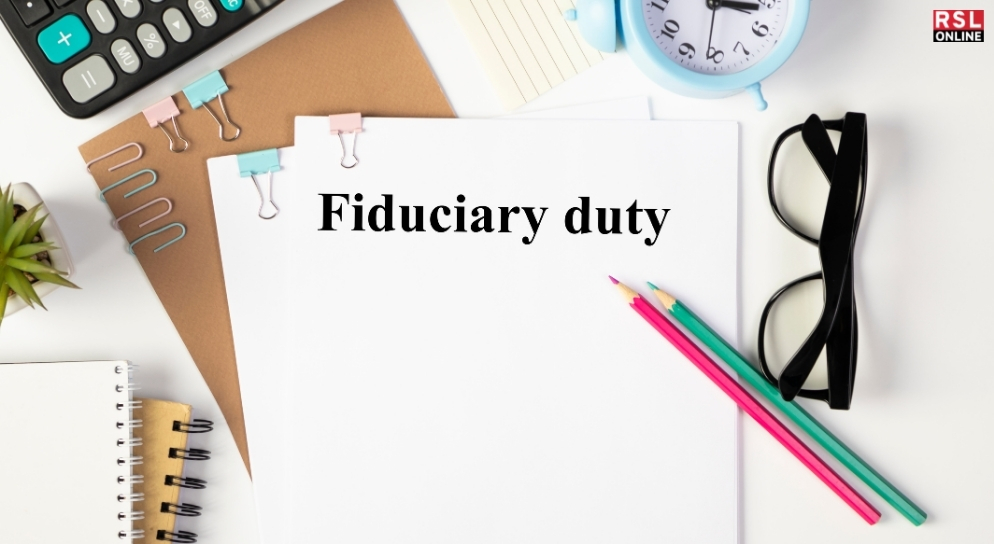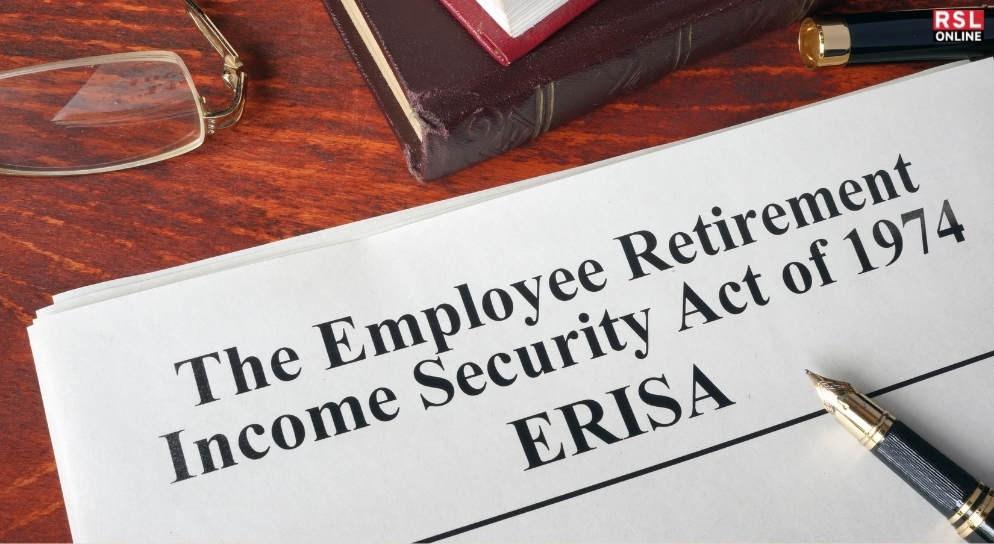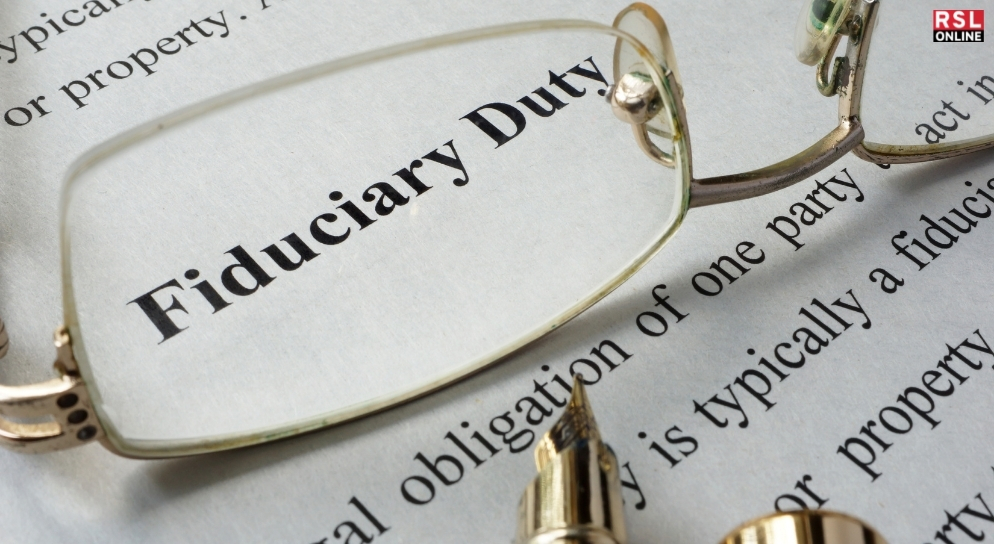Employee Fiduciary 101 | Complete Guide on Duties + More!
by Mashum Mollah Finance 30 October 2024

Employee fiduciary is almost similar to a benefit – who receives it? Well, it’s the employee who reaps the benefit of additional service of the employee. Think of it as helping the principal when you were in school. You felt special but also knew it was a huge responsibility. Even if it was just helping her carry the project files to the staff room.
An employee fiduciary is an employee who carries out activities in the best interest of the employer – as they are legally bound. This is after a point when the employer trusts them to look after the assets. Similar to what is a fiduciary, the employee fiduciary must show loyalty to the beneficiary.
The employer’s interests are put before their own, and it’s now the employee’s duty to deliver on the additional obligations.
The employee’s fiduciary duty to the employer will be explored in the following sections, including other aspects of the responsibility.
What Is Employee Fiduciary? Is Someone Else Taking Care of Employee Assets?

No, that’s the answer to the latter question. This is because it is a natural agreement that employer-employee enter during hiring. The employer has fiduciary duties to the employee, which implies that they are responsible for taking care of the financial assets of the employee and acting in the best interest of the employee.
An employee becomes a fiduciary when they have the employer’s trust and are tasked with managing the employer’s assets. In some cases, they may even be asked to manage the organization.
First, let’s explore the concept from the employee’s perspective, where the employer is responsible for acting in good faith for the employee and ensuring they are financially secure.
The employer’s role in this aspect is to choose a financial plan that allows their employees to retire comfortably. ‘For instance, the employee fiduciary 401k plan is a prime example of a good retirement plan for your employees.
Healthy workplaces value their employees and recognize the legal concept of fiduciary employees, which is when employers trust them to the point of appointing extra obligations.
These are fiduciary obligations that have a significant effect on the employment relationship – especially during termination.
This attracts significant damage to the organization if they are not managed well. Let’s first discuss the 401(k) plan and the legal obligation employers have towards their employee’s retirement.
Employee Fiduciary 401k – 5 Tax Benefits For Employers!

When you offer a 401k plan for your employees, you help them save for retirement while also providing tax benefits for your small business.
Whether you are thinking of providing a 401k plan or other retirement plan for your employees, always weigh in the tax benefits they both provide:
- Startup cost credits that you can claim up to $5000 per year for the first three years of your plan
- Employer contribution credits of up to $1000 per employee for the first five years of the plan
- Automatic enrollment credit that allows you to earn up to $500 per year by adding automatic enrollment
- Tax-deductible contributions that deduct employer contributions up to 25% of the total compensation
- Deductible plan expenses allow you to plan administration and employee education costs that are paid from the corporate accounts. When you support the education of an employee/employees, you are saving tax while improving the employee’s future.
Such plans help reduce the financial burden on businesses and make it easier for them to offer retirement plans to their employees. So, if your business has 100 or fewer employees, you can exclude employees who earn less than $5000 in the preceding year.
You can have at least a non-highly compensated employee as a participant in the plan; you also must not sponsor a retirement plan for the same employee in the last three years.
Who is a highly compensated employee, you may wonder – the employees who earn more than 5% of the business at any time during 2023-2024. OR those who earned more than $150 000 in 2023 and were in the top 20% of employees when ranked by compensation.
If you think you can offer solo 401k plans and still reap tax benefits, think again because that’s invalid, as it does not contain NHCEs.
What’s more…
Choosing the right retirement plan for your small business depends on various factors, such as:
- Size of your workforce
- Flexibility of contributions (employer-employee, technically, the former party pays more in the initial years, or the contributions can be 50-50 from the beginning)
- Administrative capacity of the employer/organization
Benefits For Employers And Employees
A safe harbour 401k plan offers benefits for both the employer and the employee. Let’s have a look:
The employer benefits in the following ways:
- Simplified administration allows the employer to avoid complex compliance tests. The ADP/ACP Δ testing requires a large amount of data that goes into proper calculations – the employer can avoid this calculation.
- Guaranteed contributions allow you to attract and retain top talent where the employer can avoid the risk of contribution refunds. This is essential as it allows deferring 402(g) up to $23 000 or $30 000 if eligible for catch-up.
Δ ADP/ACP testing allows fair opportunity for benefits of the 401k plan. The Actual Deferral Percentage (ADP) and Actual Contribution Percentage (ACP) testing are among other top-heavy tests that prevent unfair benefits for higher-paid employees.
Employee benefits:
- Additional funds towards their retirement savings above what they might save on their own
- 100% vested safe harbour contributions, whereas QACA contributions can require more than two years of service to fully vest
- Guaranteed employer contributions ensure that the savings are faster. This clubbed with vesting, implies better savings to compound until retirement.
The 401k plan should ideally include eligibility provisions that define when employees can join and/or receive employer contributions. This is possible with flexible options that adjust accordingly.
ERISA for Employee Fiduciary

The Employee Retirement Income Security Act makes people with a 401k fiduciary under it. This implies that those employees have direct authority over the assets or plan’s management. This also gives them direct authority over those who provide free investment advice.
In the case of employees – the employers are the fiduciaries as they have the legal responsibility to protect and look after the participant’s savings. This makes them solely liable for acting in the best interest of your employee.
Thus, as per ERISA, those who manage and administer 401k are fiduciaries – however, this is not applicable to ERISA or IRAs. This protects the employees’ savings (plan assets) from being misused.
Those in high-level management positions owe a fiduciary duty; however, despite that, some may not satisfy the legal standards of being a fiduciary.
How To Determine Employee Fiduciary?
The next natural question is asking who determines fiduciary employees. Legally, the following standards help determine employee fiduciary:
- Unilateral exercise of discretion or power to affect the beneficiary’s practical or legal interests
- Has scope for exercise of some power or discretion
- Peculiarly vulnerable to or at the mercy of a fiduciary holding the power or discretion
The presence of all the above factors does not guarantee the presence of a fiduciary relationship. It is dependent on heavy analysis that gives rise to a conclusion about whether an employee is a fiduciary or not.
Let’s look at employee fiduciary from the employer’s perspective.
Employee Fiduciary Duty

Employers also require protection from employees who may misuse their power. That is where the law intervenes and recognizes that fiduciary employees must act in the best interests of the employees.
It is the duty of the employee to owe the following fiduciary duty to the employer/s:
- Duty of good faith
- A duty of honesty
- Duty of loyalty
When an employee puts the beneficiary’s (employer) best interest above their own – it is the employee’s fiduciary duty of loyalty. It is also their duty to excuse themselves for any action that may lead to a conflict of interest with the beneficiary’s welfare.
Similarly, the duty of good faith plays along the lines of acting within the law to improve the interests of the beneficiary. There must not be any actions on the part of the employee fiduciary that led to legal consequences. This implies their actions should be within the legal constraints.
Lastly, the employee fiduciary must maintain a duty of honesty that involves not secretly making a profit at the beneficiary’s expense. They must also display honesty in their work, performing their fiduciary duties and responsibilities.
These are some of the duties that may be present in the employee fiduciary handbook or a contract. These duties are mere expectations that employers have of their fiduciaries, and any breach can be detrimental to the relationship.
A Few Examples Of Employee Fiduciary Duty Breaches
The following are the breaches that may affect the
- Actions undermining the trust, such as poaching the employer’s clients after the relationship ceases.
- Fiduciary obligations breach when a former employee solicits clients from a former employer to benefit the current employer. This negatively affects the previous employer and is a direct breach of duty of loyalty and honesty.
So, how long does one play the role of employee fiduciary? If you are loyal to the same employer until you retire – your fiduciary duty is for the entire tenure. Even if you end the relationship, the fiduciary obligation remains even after the termination of your duties.
Moreover, it is the employee’s obligation to avoid exploiting the advantages gained from the previous employer.
Be True To Your Fiduciary Duties!
A key takeaway from the article is to contribute to the relationship you have with the employer– especially if you have fiduciary duties to them. As per the employment agreement, you are legally bound to the employee fiduciary duties mentioned above. Including any other duties that may be included in your contract.
Be careful to review the contract carefully and seek professional advice if need be – it is an important consideration when taking on new roles.
If you have any more questions to ask about the process, contact us!
Additional Reading:



































































































